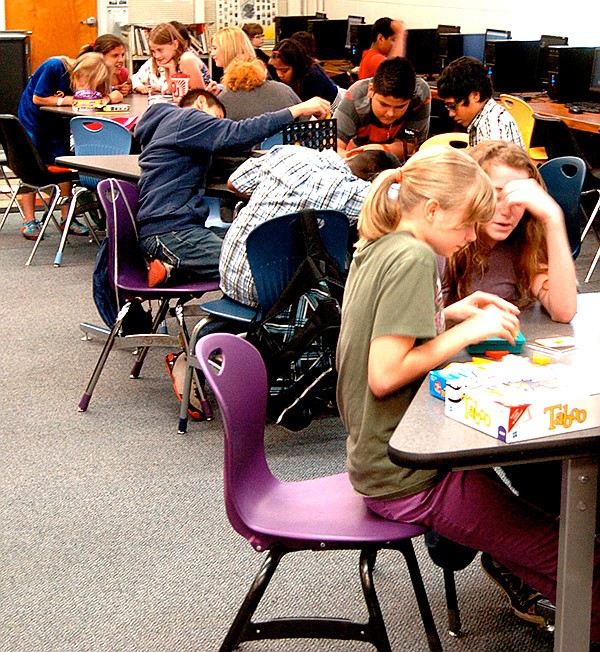Summer sessions deemed success
Students of Northside Elementary School in Decatur work on class projects during the first day of the summer program on June 10. The program was designed to allow both elementary and high school students the option of taking additional course work in order to get a head start on the 2013-14 school year.
Tuesday, August 27, 2013
DECATUR — The goal of every educator is to give his or her students a chance to grow and prosper as they move forward in life and to take advantage of every opportunity that presents itself and advance through learning. This was the goal Decatur School Superintendent LarryBen and a small band of teachers and administrators set when they designed and executed the Decatur Summer Program.
The Summer Program was designed as an alternative to the traditional summer school. It was a completely voluntary program, allowing students to take classes they wanted while giving them a jump on the 2013-2014 school year.
“We wanted to do it differently than what we have experienced before,” said Mitch Wilber, federal programs coordinator, during the August 19 school board meeting. “We decided that we would try something different, way different,” he added.
Making the program work and be a success took a lot of dedication and cooperation from everybody, from the teachers and administrators, down to the food service workers and bus drivers.
The program was divided into two sessions. The fi rst session started June 10 and lasted for three weeks. The second began July 8 and it too lasted three weeks. Enrollment in the fi rst session consisted of 53 elementary students (24 fi rst through fourth grades, 15 fifth, and 14 sixth). The same session enrolled 45 high school students.
In session two, the numbers dropped to 36 elementary students and 30 high school students. One reason cited for the decline was that the session was in the middle of the summer, right after the Independence Day holiday. A lot of families were vacationing.
Still, the combined totals of 89 elementary and 75 high school students were impressive enough to warrant a review of the program for next summer.
The meal program, sponsored by the Seamless Summer nutrition program, was free to students 18 andunder. Visitors paid $2 for breakfast and $3 for lunch. A total of 1,875 meals were served during both sessions.
Classes began at 9 a.m and ended at 2 p.m. each day. Bus service was available to those students needing transportation.
Each week had a different topic for the elementary students. For each week’s topic there was a corresponding fi eld trip.In Session One, the topics were art, with a trip to Terra Studio; cave systems, with a trip to War Eagle Caverns; and animal conservation, with a trip to the Tulsa Zoo. Session Two topics consisted of life in the 1800s, with a trip to Shiloh Museum in Springdale; water cycles, with a trip to Tanyard Creek; and ecosystems, with a trip to an aquarium. Each of these topics was designed to give students an inside edgeon the coming school year.
The high school program allowed some students to work with Coach Shane Holland on a variety of different sport fundamentals vital to the upcoming sports season, while others chose to work on their academics. Wilber reported that 15 students completed a full semester of course work, and 50 percent of the remaining students completed onehalf semester of work. Thesestudents received academic credit for their efforts and a chance to advance in the 2013-14 school year.
Wilber acknowledged the many teachers, administrators, food service workers, bus drivers and custodial staff who helped to “pull off” this program. By sacrificing a little of their summer to the program, teachers and staff alike gave to the students a chance to gain a competitive edge, notonly for the coming school year, but for their future endeavours.
Wilber summed up the summer program this way: “A very interesting project. I think that, for the most part, the kids enjoyed it. They absorbed it. I think they learned a lot. The fact that we provided food and transportation for this program was a plus. Bottom line is that the kids learned from this program.”
News, Pages 1 on 08/28/2013
